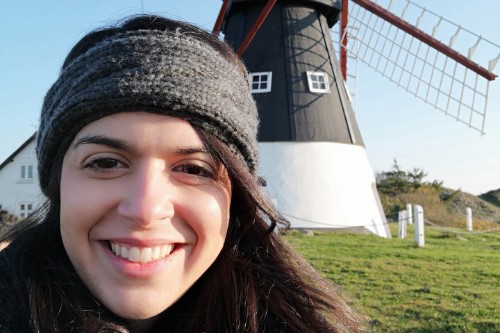In their study, Kate and colleagues used computer simulations to investigate how resistant plant-pollinator and plant-herbivore networks are to the loss of species. They found that when network structure was static, pollination networks were less resilient than herbivory networks. But when interaction rewiring was incorporated in the models, they showed that the structure of pollination networks enhanced resilience to extinctions.
The Elton Prize is awarded each year for the best paper in the Journal of Animal Ecology written by an early career author at the start of their research career. The winner is selected by the Senior Editors of the journal.
Kate said: “I enjoyed the coding challenge of this research – since this was my first experience with this level of modelling – and to design the different scenarios for each of the questions.”
Darren Evans, Senior Editor of the Journal of Animal Ecology said: “Kate P. Maia and colleagues have created a general benchmark for the effect of network structure on robustness, which will undoubtedly help ecologists working on the resilience of different interaction networks.
“We were particularly impressed by the way Kate complemented her analysis of empirical network data with theoretical networks, elegantly advancing the utility of adaptive network models to help elucidate important ecological and evolutionary considerations pertinent to further studies of resilience.”
The winning papers are selected by the Senior Editors of the journals and the awards will be presented to the winners at the BES Annual Meeting in Edinburgh.
The winners receive a prize of £250, membership of the BES, a year’s subscription to the respective journal, and free attendance to the BES Annual Meeting to present their work and receive their award from the President of the BES.
This year’s exceptional winning papers span topics as diverse as disease preventing hyenas, public perceptions of the deep sea, and valuing biocrusts.
Read Kate’s article here: Interaction generalisation and demographic feedbacks drive the resilience of plant–insect networks to extinctions.
